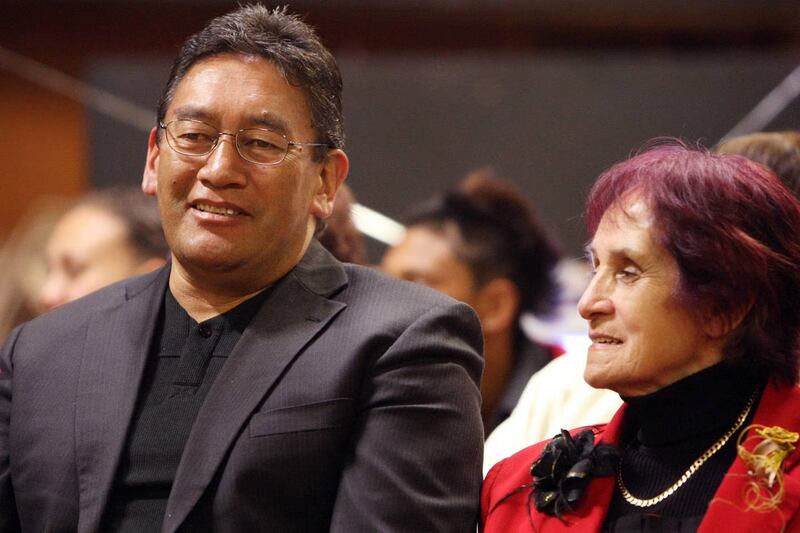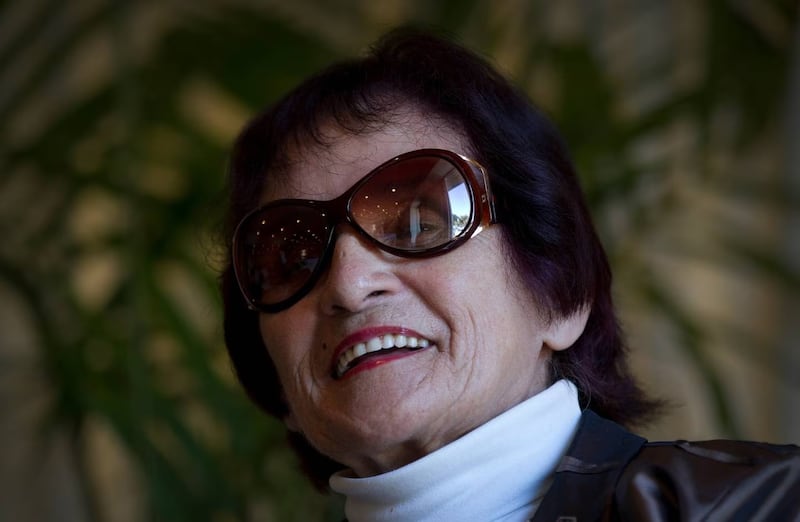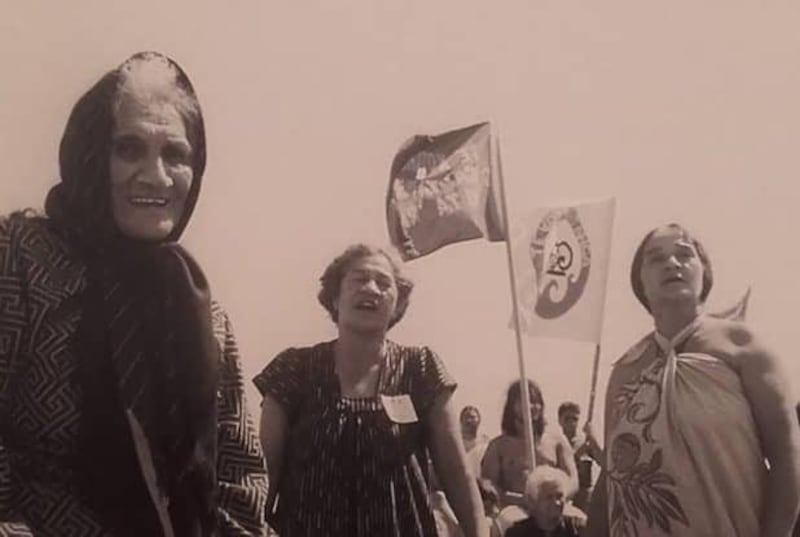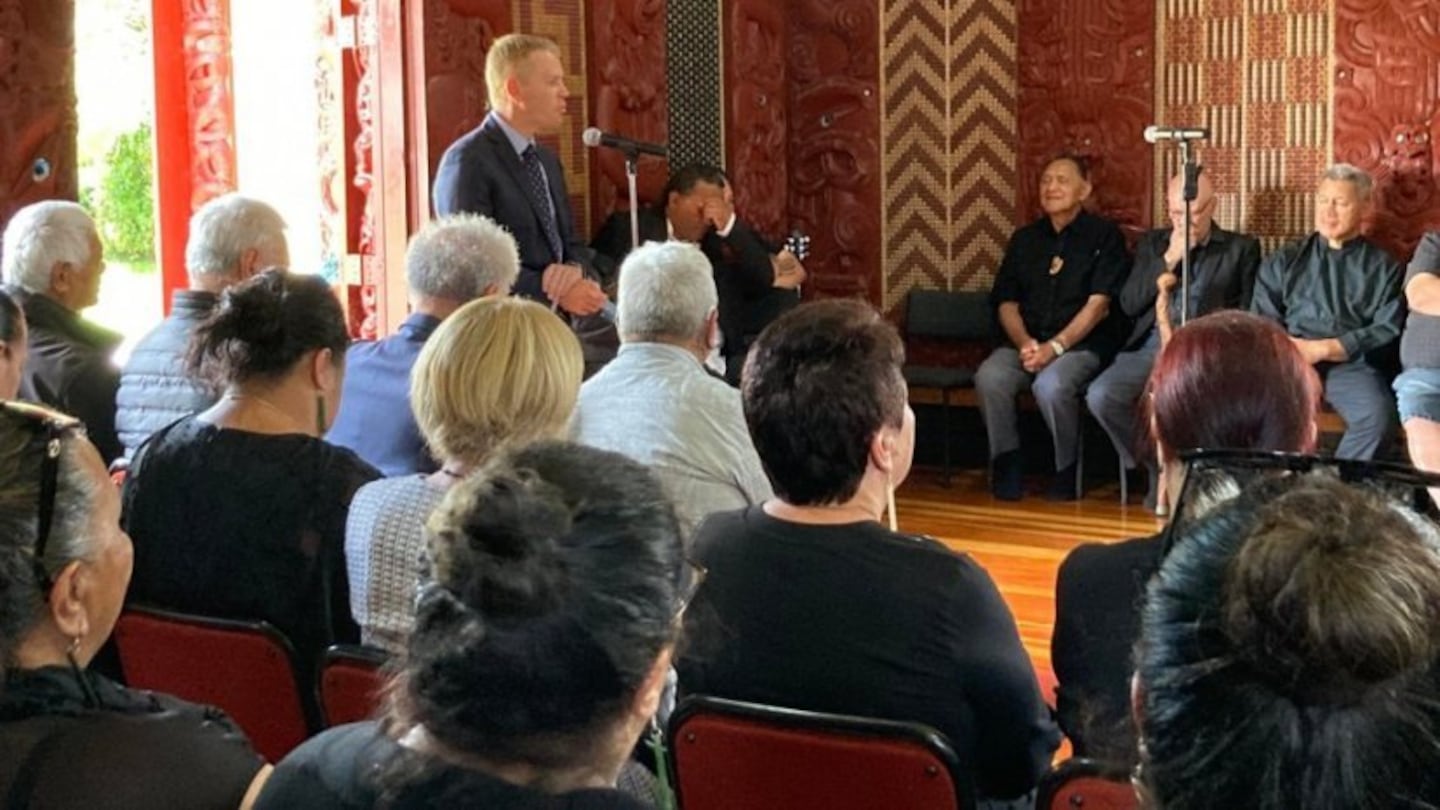Dignitaries from Te Ao Māori and society more broadly - including newly sworn Prime Minister Chris Hipkins - are attending the tangi of trailblaizing Māori activist Titewhai Harawira. Photo / Tamati Tiananga
Thousands have descended on Hoani Waititi Marae in West Auckland to farewell trailblazing Māori civil rights campaigner, activist and political commentator Titewhai Harawira.
Harawira (Ngāti Hau, Ngāti Wai, Ngāti Hine) died on Wednesday at the age of 90.
Dignitaries from Te Ao Māori and society more broadly - including newly sworn-in Prime Minister Chris Hipkins were in attendance.
“She always reminded New Zealand of who the rangatahi whenua are in this country,” Te Pāti Māori co-leader Rawiri Waititi said.
“She belongs to those you fought for, Māori like Whina Cooper, Eva Richard, Hana Jackson, Syd Jackson and Moana Jackson.”
Rangi McLean (Hapai Te Hauora) and Dame Naida Glavish were among those paying tribute.

Titewhai Harawira with son Hone in 2008. Photo / John Stone / NZME
Whānau spokesperson and Harawira’s mokopuna, Tumamao Harawira, said his grandmother’s late wish was to be buried in Takapuna with chief Patuone, the eldest son of Tapua, leader and tohunga of Ngāti Hao of Hokianga.
Patuone was one of the first chiefs to sign the Treaty of Waitangi.
Harawira was an inspiration for activist group Ngā Tamatoa during its landmark 1970s victories promoting Māori rights, fighting racial discrimination, and confronting Crown breaches of Te Tiriti o Waitangi.
Alongside fellow campaigners Dame Whina Cooper and Eva Rickard, Harawira was on the forefront of the 1975 land hīkoi from Te Tai Tokerau to Parliament.
Born Titewhai Te Hoia Hinewhare in Whakapara, Te Tai Tokerau in 1932, Harawira was raised by her maternal grandparents. She trained as a nurse and in 1952 married John Harawira, the pair settling in Avondale in Tāmaki Makaurau.

John Harawira died in 1977 and Titewhai Harawira brought up their extended family. Photo / Sarah Ivey / NZME
Nine children, including prominent politician Hone Harawira, and another three adopted children did nothing to pump the brakes on Harawira's activism.
She was active in the Māori Women's Welfare League, especially in its campaign to improve housing.
John Harawira died in 1977 when the pair's youngest child was just eight-years-old and Titewhai raised the extended whānau by herself.
Harawira became a familiar face at Waitangi commemorations from the 1970s, accompanying prime ministers and heads of state onto the Treaty grounds.

Titewhai Harawira, Eva Rickard and Whina Cooper. Photo / John Miller
Harawira was a "warrior woman" Māori Development Minister Willie Jackson recalls. He told NZME she wasn't just a protester "but in fact became one of our most important leaders, particularly for urban Māori and challengers to the establishment of the last 50 years".
“She helped me when I started Radio Waatea alongside Sid Jackson by being the most radical and controversial hosts in the country, which ensured we won the Māori audience war and she never stopped working in our communities; she worked with me and John Tamihere on the New Zealand Māori Council,” Jackson said.
Crown Relations Minister and Te Tai Tokerau MP Kelvin Davis called Harawira a "great Ngāpuhi leader and activist".
"Kua ngū te reo o te piki kōtuku o Ngāpuhi, o Titewhai Harawira."
“I want to acknowledge her for her life-long dedication and advocacy for Māori rights,” Davis said.

Titewhai Harawira and Prime Minister Jacinda Ardern listen to the speeches at Waitangi 2020. Photo / Michael Cunningham / NZME
"In the coming days we will no doubt hear more of her great achievements but I want to also acknowledge her as a mother, a grandmother and a great-grandmother.
"My thoughts are with her whānau and wider communities as they prepare to farewell their matriarch,” Davis said.
"Te whaea takoto mai rā i te takotoranga o te tini me te mano, waiho mai i a mātou ki muri nei kia tangi, kia poroporoaki i a koe."


